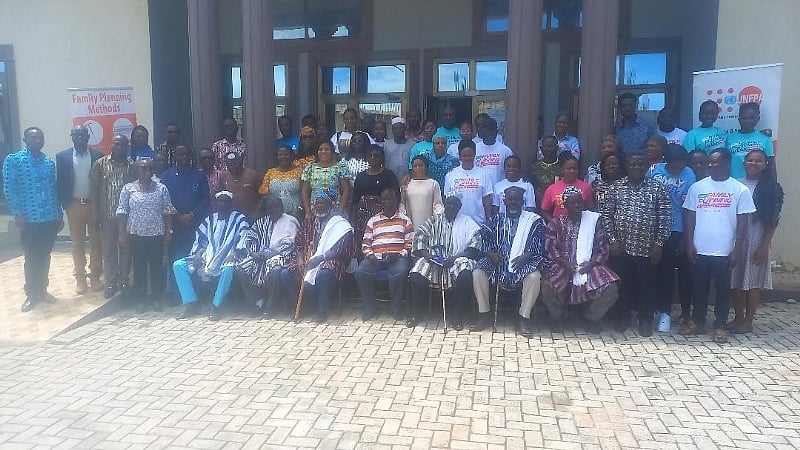The United Nations Population Fund (UNFPA) has urged the Ghanaian government to enhance domestic funding and demonstrate a greater political commitment toward family planning services and products. Dr. Wilfred Ochan, the UNFPA Country Representative for Ghana, emphasized that increasing access to family planning resources would empower young people to make informed decisions that contribute to sustainable development. Despite notable advancements in family planning within the country, he pointed out that the reliance on donor funding for contraceptives and related services remains a significant barrier. While acknowledging the positive strides made, he stressed the necessity for increased government backing, highlighting that there is still a lack of specific budgetary allocations for the procurement of family planning commodities.
The recent celebration of World Contraception Day in Nalerigu reflected a collaborative effort, bringing together stakeholders from various sectors, including the Ghana Health Service, civil society organizations, and educational institutions across several regions. Dr. Ochan’s remarks, delivered on his behalf during this commemoration, revealed that the absence of consistent domestic financing poses systemic challenges in achieving comprehensive family planning goals. He noted that family planning services are fundamental human rights, and achieving zero unmet needs in this regard requires concerted efforts, especially from government bodies and relevant stakeholders.
Moreover, the UNFPA emphasized that most private health insurance schemes are yet to incorporate family planning within their benefit packages, further complicating access to these services. Dr. Ochan raised concerns about effectively reaching vulnerable populations such as sexually active youth, rural women, and urban professionals, urging for additional resources and strategies to ensure the availability and affordability of a diverse range of family planning options. This would not only empower individuals but also address significant gaps in reproductive health services across the country.
Mr. Mammah Tenii, a Programme Specialist at UNFPA, noted that the decision to hold the regional event in the North East Region stemmed from its particularly concerning family planning indicators. He encouraged stakeholders to share successful strategies and learn from one another to enhance overall performance. Tenii reiterated the importance of collaboration and innovation to tackle the pressing challenges in family planning and highlighted the need for effective communication among different health providers and community organizations to ensure that family planning services reach those who need them most.
In line with improving educational outreach, Ms. Alimatu Seidu from the North East Regional Directorate of the Ghana Health Service advocated for the integration of sexual and reproductive health education, particularly family planning, into the school curriculum. Such efforts would contribute to a more comprehensive understanding of these issues among young people and encourage responsible decision-making regarding reproductive health. This approach is vital for fostering an informed youth population that recognizes the importance of family planning in achieving broader health and social development goals.
Additionally, Mr. Peter Awudu, a Health Promotion Officer, emphasized the necessity of involving men in family planning discussions and initiatives. He argued that engaging men in these activities could lead to healthier relationships and reduce conflicts within families, forming a more supportive environment for women’s reproductive choices. This collective approach to family planning not only enhances the overall effectiveness of these initiatives but also promotes shared responsibility among partners, ultimately leading to healthier families and communities in Ghana.


